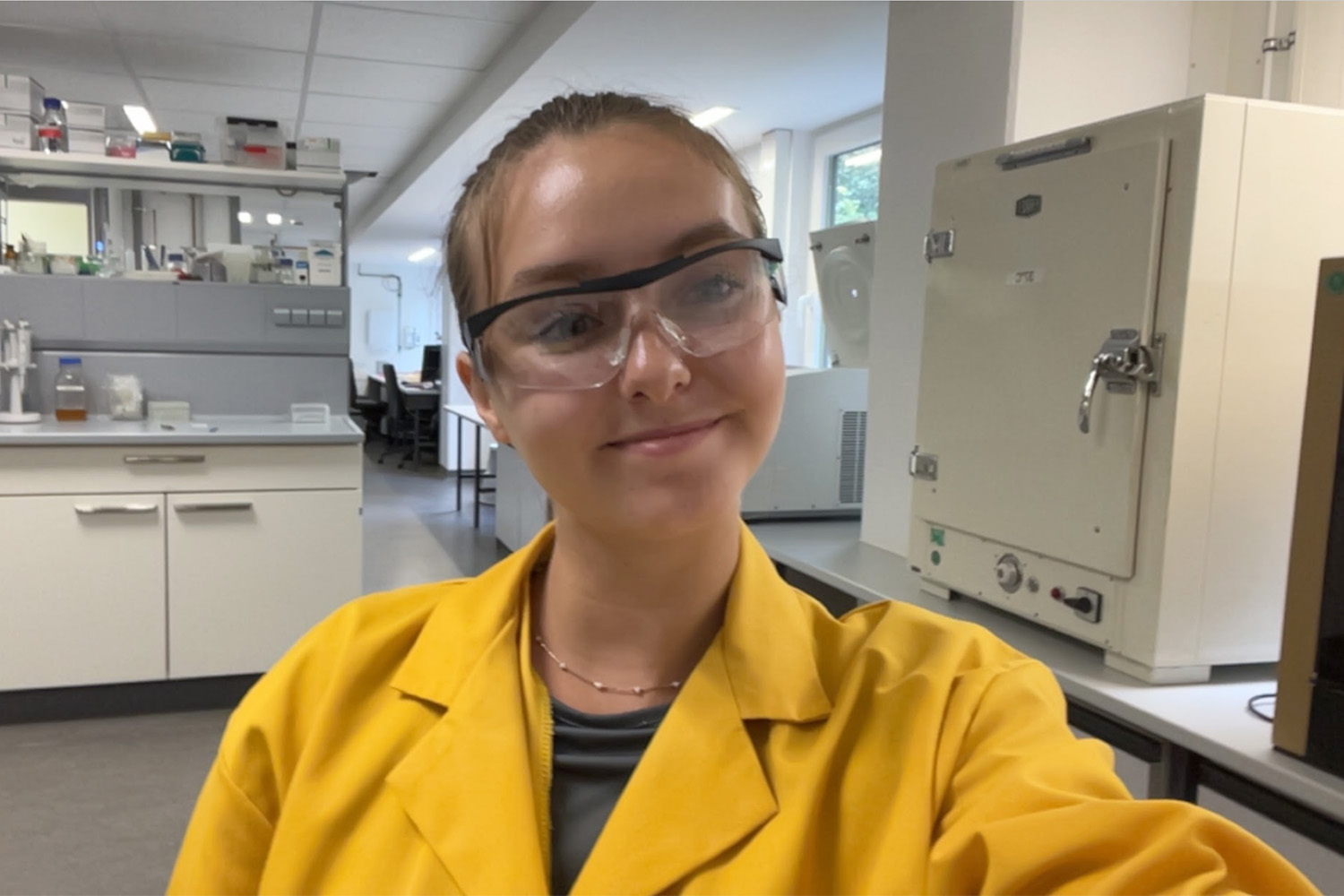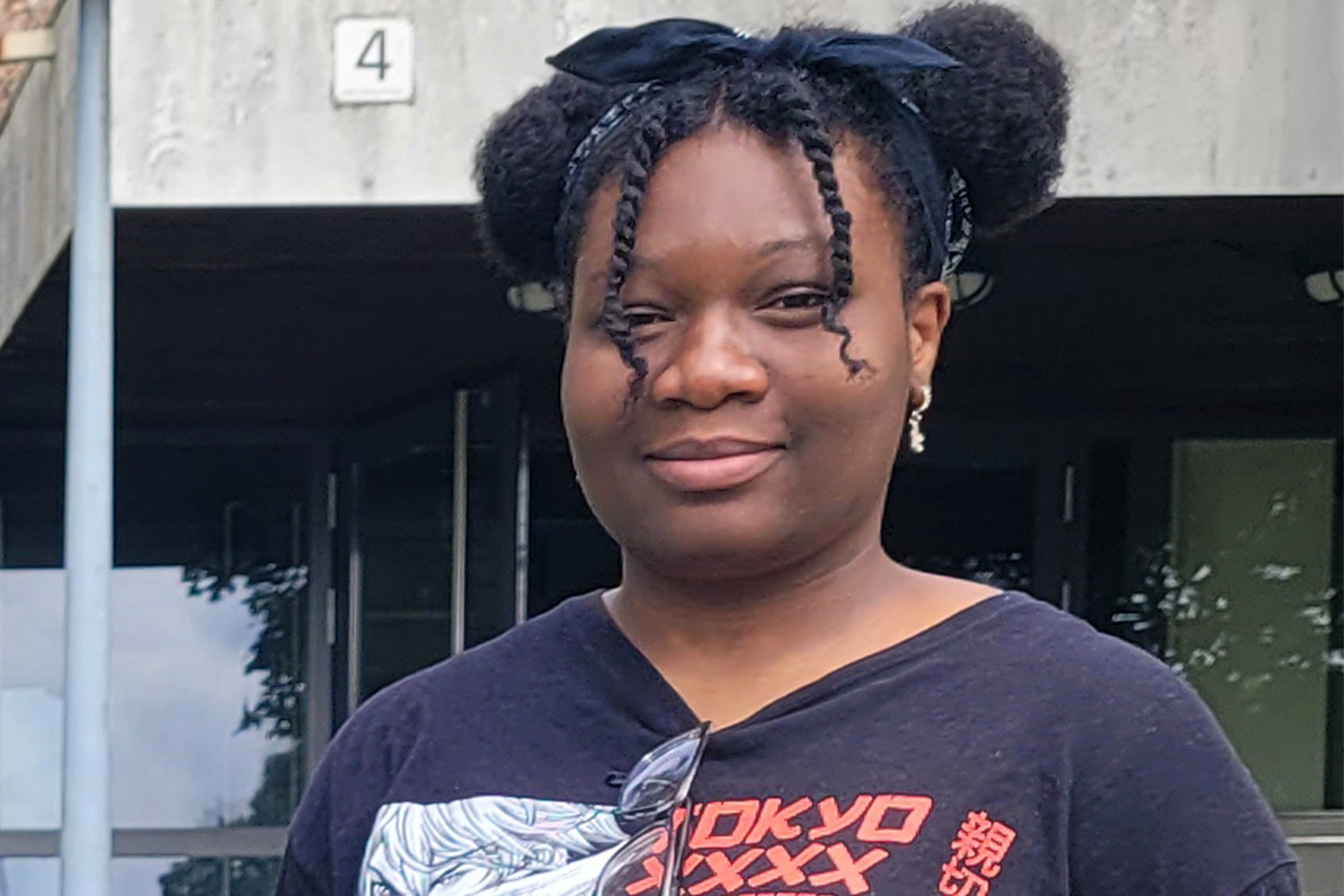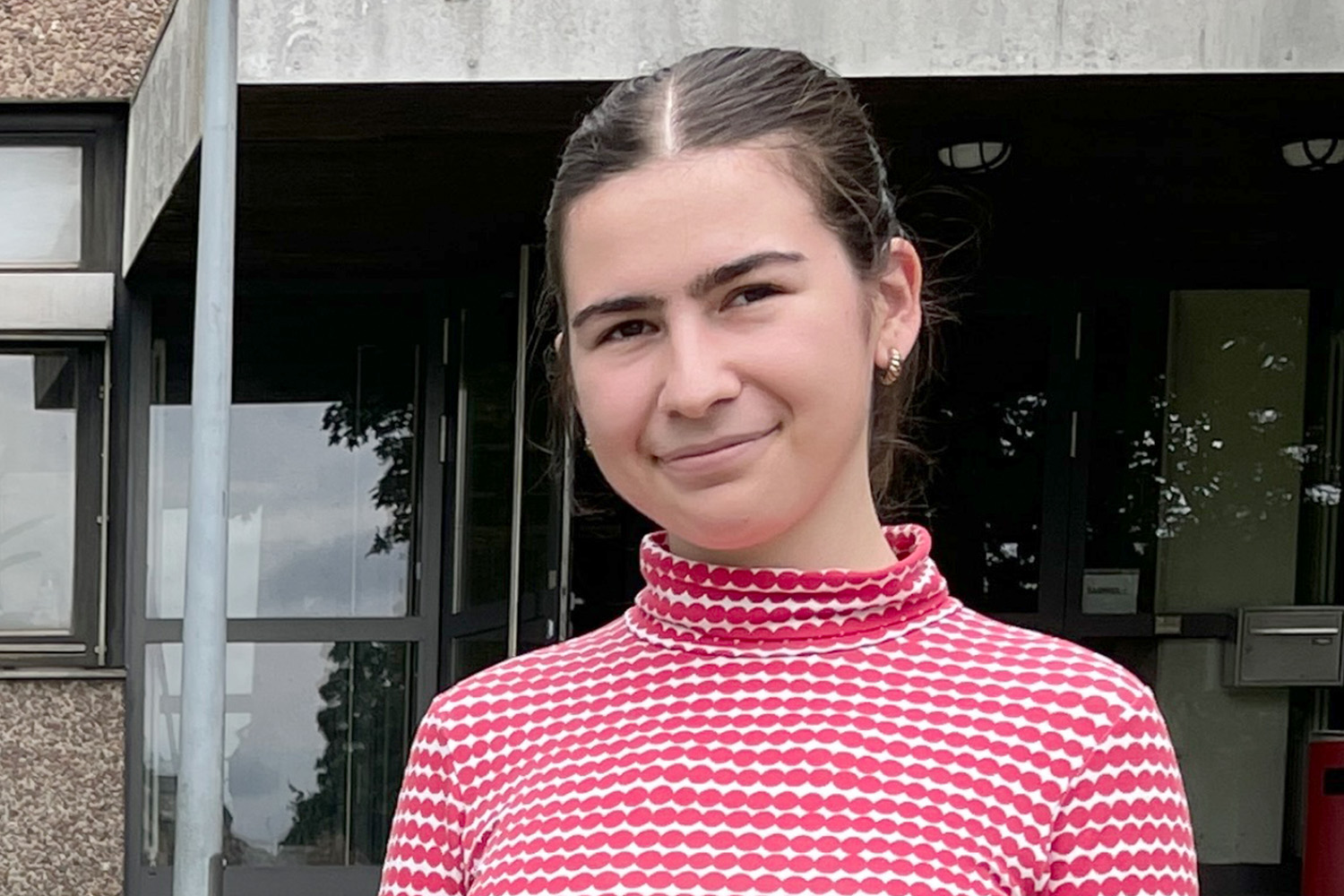“Great skills to develop no matter one is doing” Experiences of US students at the Institute of Plant Biology
Three students from the US visited the Institute of Plant Biology at TU Braunschweig for a research stay of between one and two months. Kiersten Lagerhausen from Arizona State University and Blessing Ajayi from Bates College in Maine are working on cocoa. Catrinel Berevoescu from the University of California, Davis, is researching cassava. How did they choose TU Braunschweig as a place to study, and what experiences have they had here?
What is the motivation for coming to Germany or to TU Braunschweig?

Kiersten Lagerhausen, Arizona State University. Credits: Kiersten Lagerhausen
Kiersten: The main reason I wanted to come to Germany was because of my studies in America. While my degree is based in Biochemistry I am also minoring in Anthropology. One of my favorite hobbies is learning about and experiencing other cultures. However, a personal reason of mine is that my dad’s side of my family immigrated from Germany several generations ago and I wanted to see what it was like for myself.
Catrinel: I was introduced to TU Braunschweig Plant Biotechnology and Bioinformatics group through the DAAD RISE program application process. I was interested in the plant genomics research the Pucker Lab is conducting and wanted to improve my bioinformatics skills.

Blessing Ajayi, Bates College in Maine. Credits: Catrinel Berevoescu
Blessing: I wanted to do research over the summer in a new place. Since I am currently pursuing Biochemistry and German for my undergraduate degree, I looked for research labs in Germany. I discovered Professor Dr. Boas Pucker’s lab through the DAAD RISE program through which Maria Fernanda Marin Recinos offered a project. They were the only lab I interviewed with, and I found the proposal for research cacao using bioinformatics compelling, especially since I knew very little to bioinformatics prior to joining the lab. Through the interview, I also found Prof. Dr. Boas Pucker and Maria Recinos befitting of the type of environment I was looking for. I was offered the opportunity to join the lab were I able to acquire appropriate funding, so I applied for a funding fellowship offered by my school, and here I am!
Cocoa and cassava … what is the research about?
Kiersten: My research regarding cacao has been a two part journey. The first of which was researching an effective protocol to extract high quality and quantity DNA, which proved sometimes to be quite difficult. Then the second part of my journey here was sequencing and studying the functional structure of the genome, particularly flavonoid biosynthesis genes. These genes contribute to multiple factors in plants such as color and response to biotic and abiotic stresses the plant faces.
Catrinel: In my research, I have been working to identify regions in the cassava genome that are associated with virus resistance. I am conducting a population-level analysis using a bioinformatics approach to find these genomic loci between virus-resistant and virus-susceptible cassava plants.
Blessing: My focus is on cacao (Theobroma cacao). More specifically, I am interested in further establishing the flavonol biosynthesis pathway in Theobroma cacao, and comparing different cultivars to each other. Knowing more about this pathway could help in increasing the cultivation of cacao and the biosynthetic production of flavonols. My work mainly consists of using bioinformatics tools, information from the lab and existing research to predict which enzymes are involved in the next steps of the flavonol biosynthesis pathway.
What experiences and skills are important to guests during a research stay? What role could this play in your career?
Kiersten: During my stay here I believe I have learned two critical and valuable skills for my future career. The first of which was bioinformatics. My home university prioritized wet lab learning so I had no idea the extent of the tools available online for research regarding genetics. As technology advances bioinformatics is an ever growing field that provides ample opportunity to improve our understanding of molecular sciences. The second skill I learned was how to navigate communicating effectively when there is both a language and a cultural barrier. I have grown up and studied in Arizona my entire life so being in this new environment with very limited understanding of the language proved challenging. That being said I think it was very beneficial for me going forward as I will most likely work for a private company that is based internationally in my future career.

Catrinel Berevoescu, University of California, Davis. Credits: Catrinel Berevoescu
Catrinel: During my research stay, I have enjoyed the independence of working on my project while learning from graduate students and professors. Discussing research topics and connecting with individuals in my field of interest has been a very valuable part of my experience. Additionally, I have developed my science communication skills by presenting my research to a group of Peruvian students. I have appreciated the opportunities to meet new people and speak to them about research. The skills and opportunities I have experienced at Braunschweig will support my future career in academia and research.
Blessing: Being open minded, an eagerness to learn new things, an affinity for reading, as well and patience. It is also important to ask questions when you have them, and when you do not know what you are doing. There are several benefits career-wise in having developed such skills, mostly in regards to their applicability in almost every line of work, so they are great skills to develop no matter one is doing.
How have you perceived campus life and research work here in Braunschweig so far?
Kiersten: Campus life and research work here has been amazing. Everyone in the lab is very welcoming and when I was unsure how to do something they would always take the time to teach me. I think my favorite part about working here these past months was the work-life balance. My lab frequently hosted barbeques where we were able to share stories and decompress after a long day. One of my favorite memories was when someone in my group set up a makeshift German beer testing for me to try. I also lived in the dorms during my stay here and had a wonderful time making friends.
Catrinel: I have been given a lot of independence in my research work, which has encouraged me to find creative ways to answer scientific questions. I am also able to receive feedback or advice from my lab colleagues and learn about their research in lab meetings. I have also enjoyed the social activities, such as lab barbeques, and feel that the lab is very welcoming.
Blessing: Research work has been a lot of fun! I quite like the flexibility and the deep dive into my topic of interest. Unfortunately, I am yet to participate much in campus life, so I do not have much to contribute to that.
